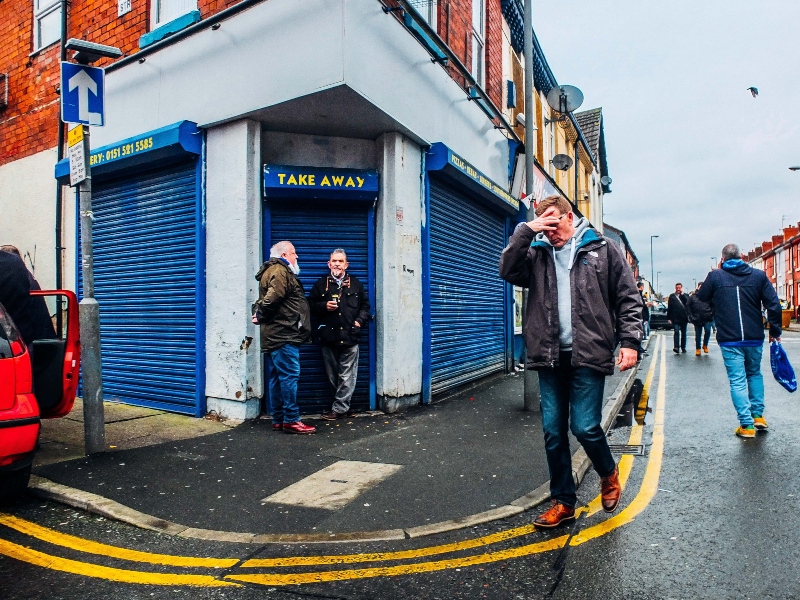White working class
Are we failing the white working class? More and more Christian conferences, books and now podcasts are focusing on leadership. But there are few, if any, that address the issue of raising up indigenous leaders in white working-class communities.
I believe the next big question for the church in the UK is what we are going to do with the huge areas of our cities where churches no longer exist, or are now so small they are impotent. By Michael Shaw

A few years ago I was at a local leaders' conference and the speaker was the leader of a large, well known, parachurch organisation. His opening gambit was to talk about how church connects with local communities.
“Do you know what all parents go to - toddler groups!” was his line. There are so many issues with this, primarily, from my perspective, as someone who works in a white working-class area, they do not go to ANY groups, let alone toddler groups. In one sentence he showed his middle-class bias and lost me. While middle class parents do go to toddler groups, white working-class parents often do not.
We do have a toddler group, but we meet in a local café, not a church, but even then, parents from demographically poorer backgrounds would find our toddler group difficult to engage with. We tried to be open and welcoming but even then, they would come once, look, and feel awkward and often do not return. Only more recently, since lockdown, have a few local families stayed, and committed for more than one or two sessions.
A recent House of Commons select committee report showed again (this is nothing new) that white working-class children on free school meals are being left behind. Although I don’t agree with the their conclusion that terms like white privilege are unhelpful (children from ethnic minorities on free school meals, who graduate from University, are less likely to get a job than their white counterparts), having worked in white working class areas for the last 12 years, I know that the kids here do not get the same start children in other areas of the country do.
I am a governor of one of the local primary schools. Children here arrive 18-24 months behind national developmental levels. Which means even if they make over and above normal progress (18 months rather than 12) then many are still over a year behind!
There is an institutional issue at play here. If your grandfather or mother left school at 15, with no qualifications and never worked, if your parents left school at 16 with no qualifications and has never worked, what value do they pay to education? Teachers will often say that support by parents is vital in children achieving in school.
So, while these factors are at play the church is also complicit. In the area I live 5000 people we have just one “evangelical” church (ours) and one Anglican parish church. All the recent church plants into the city, the well-resourced ones, have all been into the city centre, near the uni. And while we have had two or three attempted plants, none of these have lasted more than a few months, and none of those people have gone on to dig into either of the local churches.
In the same way that the education system is failing white working-class kids, so are churches. These areas are hard, and some like ours, have a reputation, often one that is not reflective of the area. I have worked in three deprived areas, all of which have low church attendance and all have a reputation that means many Christians are wary of living there (I was once asked about the gang situation in Devonport, my reply was the only gangs you need to worry about are gangs of seagulls).
More and more Christian conferences, books and now podcasts are focusing on leadership. But there are few, if any, that address the issue of raising up indigenous leaders in white working-class communities.
The church in the UK is becoming a middle-class institution.
And yet Jesus came proclaiming good news to the poor. He was born into a poor family, grew up in the wrong part of Judea, his disciples included fishermen, working men! He was constantly challenged about his authority to teach (read John’s Gospel with that in your mind). He spent his time in Bethany, not central Jerusalem - Bethany means the house of the poor. Jesus was an outcast in every possible way, and yet here we are 2000 years later with a church that would not be found in the areas of that he would be found in.
Quite rightly the church has been reflecting on its involvement with institutional racism, and several key leaders have been called out for sexual abuse of women (power and control). The next big question for the church in the UK is what we are going to do with the huge areas of our cities where churches no longer exist or are now so small, they are impotent.
Do we want our church to be a middle-class institution? Or do we genuinely believe that Jesus came for the poorest in our nation? Are we also failing the poorest in our nation?
I will finish with the quote from St John Chrysostom “The rich exist for the sake of the poor. The poor exist for the salvation of the rich.”
Image | Zach Rowlandson | Unsplash
Michael Shaw is minister of Devonport Community Baptist Church in Plymouth
Do you have a view? Share your thoughts via our letters' page.
Baptist Times, 09/07/2021